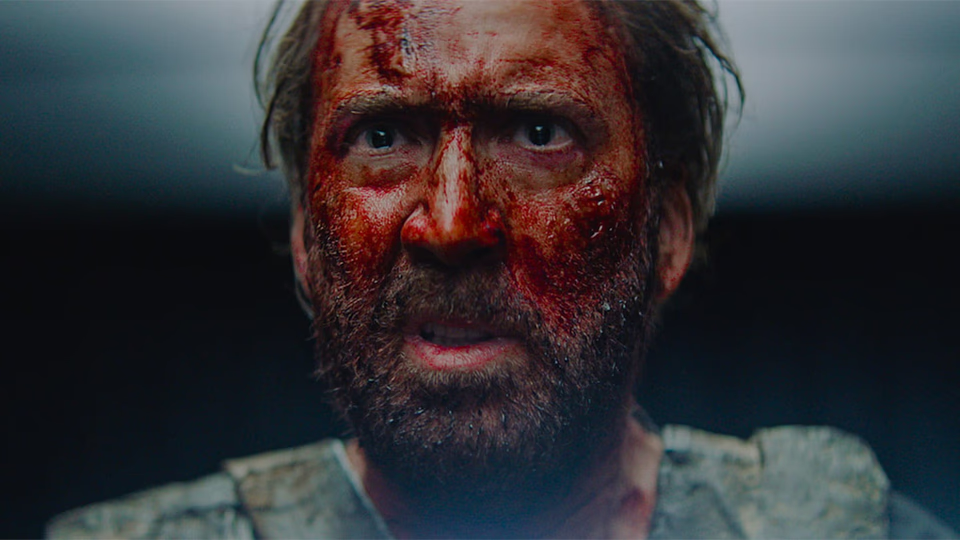Mandy

Saying Mandy is about a man who exacts revenge on the Manson-like cult that murdered his girlfriend is like saying Kill Bill is about a woman exacting revenge on her boss after he kills her husband. Explaining the plot provides no sense of the viewing experience.
Director Panos Cosmatos sets his film in 1983. Early in the film, his protagonist, Red, drives home and we hear part of Ronald Reagan’s Moral Majority-inspired speech on the radio. Red turns it off, which proves a telling preview of Cosmatos’s sensibilities. While not a Satanic picture, Cosmatos draws inspiration from the same heavy-metal imagery that infuriated conservative groups early in the decade.
Indeed, Cosmatos drenches the picture in 80s horror atmosphere. A demonic biker gang feels pulled right from Clive Barker’s Hellraiser. He drenches the picture in red gels, evoking 80s Italian horrors like Lamberto Bava’s Demons. The story’s nihilistic tone echoes Lucio Fulci’s Gates of Hell Trilogy. Even the inter-title fonts feel plucked from 80s horror paperbacks.
The soundtrack, by Jóhann Jóhannsson, features booming, dissonant, distorted guitar sounds. A mountainous soundscape that feels like a modern, industrialized evolution of the landmark work by the likes of Goblin and Fabio Frizzi, it matches the film’s epic intent.
Said intent may prove off-putting for some. At just over two-hours, Mandy runs long for a revenge-o-matic. Cosmatos takes his time, giving us a sense of Red’s bucolic life, while foreshadowing the coming doom.
This investment pays off later, when Cosmatos plunges Red headfirst into a hellscape that feels as though another, darker, universe was bleeding into ours. We accept the heightened settings, characters, and action because they feel congruent with the film’s established reality. Even a closing shot, which features impossible mountains against a night sky adorned with giant celestial bodies, feels plausible, even if we don’t understand it. Cosmatos has created more than a film, he’s created a world.
And in Nicolas Cage, Cosmatos has the perfect audience surrogate. As Red, Cage convinces from the outset as a man with demons. His sad eyes and quiet demeanor convey the apprehensive joy of a man surprised by his own good fortune. Then later, Cage proves just as convincing as an unhinged killing machine. His history of over-the-top performances makes it easy for us to swallow him ingesting massive quantities of potent narcotics, crushing skulls, and wielding a homemade battle axe. We empathize with his loss and thrill at his vengeance. I can’t imagine another actor with both the range and familiarity necessary to sell such a part.
That said, Mandy won’t appeal to everyone. It’s a slow burn and Cosmatos veers far into the formal. But all his stylistic rigour doesn’t overshadow the immersive viewing experience. Like the best films, you don’t just appreciate it from a visual standpoint; you live it as an emotional journey. I admit, I have a penchant for nihilistic Italian horror and revenge-o-matics, and if Mandy scratches your itch like it does mine, there is no substitute.